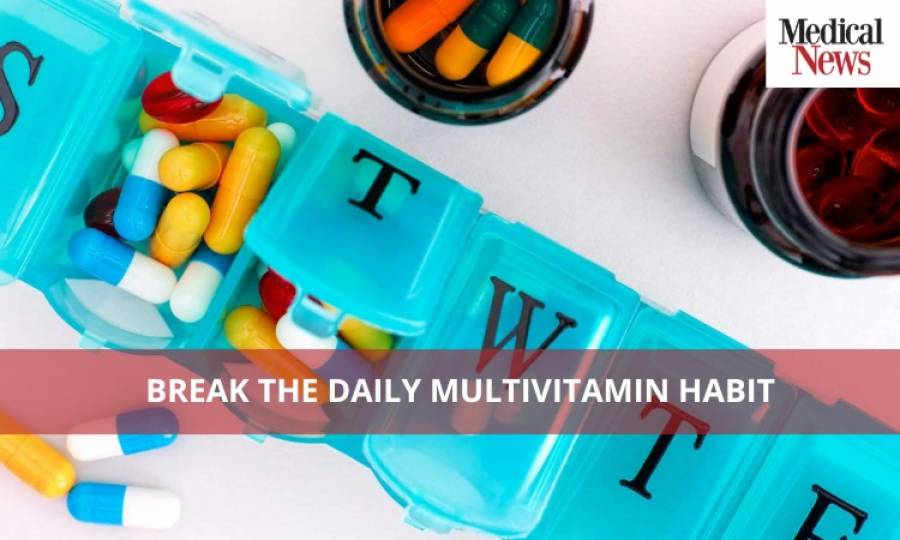Break the Daily Multivitamin Habit

Multivitamins are dietary supplements that typically include a wide variety of vitamins, minerals, and other nutrients. Since there is no agreed-upon definition of a multivitamin, the nutritional make-up of these supplements varies widely from one manufacturer to the next. Vitamins, multis, and multiples are all names for multivitamins. Tablets, capsules, chewable candies, powders, and liquids are some of the different delivery systems for these products. Multivitamins are typically taken twice a day. Before taking any medication, it is recommended to check the label to see the suggested dose. You may get a multivitamin at any pharmacy, major discount shop, grocery store, or online.
Why multivitamins should not be taken every day?
The efficacy of multivitamins is a contentious topic amongst experts. Some people believe they fill nutritional gaps, while others see them as an unnecessary and costly band-aid. Recent studies have found that:
Taking a multivitamin won't prevent a heart attack or stroke. A multivitamin won't protect you against cardiovascular disease if you're an otherwise healthy adult. Indeed, the United States Preventive Services Task Force found no evidence of benefit from vitamin and mineral supplementation in 2014 for the avoidance of cancer or cardiovascular disease.
Nature often supplies the best sources of the vital nutrients our systems need. Most vitamins, minerals, and phytochemicals (plant components that function as immune boosters, antioxidants, anti-cancer agents, and anti-inflammatories) obtained from whole meals are preferable to the same nutrients obtained from a pill. The health advantages of a multivitamin are less than those of eating a balanced diet.
According to one research, calcium supplements have been linked to an increased risk of a heart attack. Many medical professionals advise patients to acquire their calcium through food rather than supplements to reduce the risk of heart disease.
Several supplements, such as multivitamins, folic acid, iron, and copper, were linked to elevated mortality risk in older females in research published in the Archives of Internal Medicine. The team found no evidence that taking multivitamins lowered the probability of developing cardiovascular disease, cancer, cognitive decline (including memory loss and impaired thinking), or dying prematurely. They also mentioned that previous research has shown that vitamin E and beta-carotene supplementation, particularly at high levels, might be detrimental.
"Pills are not a shortcut to improved health and the prevention of chronic illnesses," says Larry Appel, M.D., director of the Johns Hopkins Welch Center for Prevention, Epidemiology, and Clinical Research. Eating a healthy diet, maintaining a healthy weight, and reducing the amount of saturated fat, trans fat, sodium, and sugar you eat are other nutrition recommendations for which the evidence of their benefits is much more robust.
The bottom line
Taking a multivitamin won't make you healthy overnight. There is mixed evidence that they improve health. They could be harmful in some situations. It's best to take a deficient nutrient supplement if you know what it is. There are a lot of nutrients in multivitamins, and it's possible you don't need them all. Your best course of action may be determined after consulting with your healthcare provider.
It's also not a good idea to take a multivitamin to make up for a bad diet. Maintaining excellent health over time is considerably more likely to be accomplished by eating a well-balanced diet of fresh, whole foods.
Advertisement
Trending
Popular
Hair loss: Discovery uncovers key stem cells that could reverse ...
-
Broccoli sprout compound may help lower ...
11:31 AM, 25 Feb, 2025 -
Gas Pain vs. Heart Attack: How to tell ...
09:00 PM, 22 Feb, 2025 -
Coconut oil supplement shows promise ...
08:00 PM, 20 Feb, 2025 -
How diet affects cancer risk: Latest ...
08:00 PM, 12 Feb, 2025



